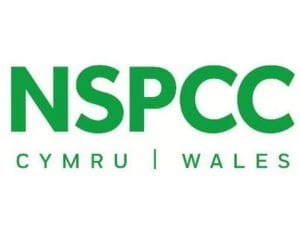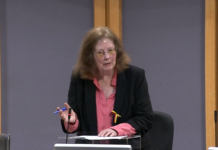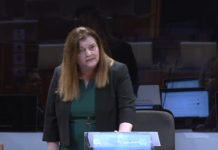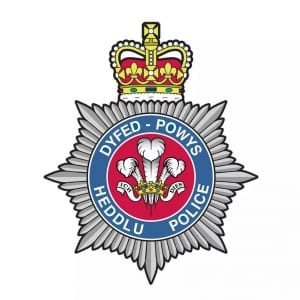NSPCC issues livestreaming and video-chat warning as survey highlights risks
- Quarter of children surveyed have livestreamed and one in eight video-chatted with someone they had never met.
- Father of boy groomed on Facebook and Skype tells of abuse horror and demands government action.
- NSPCC’s Wild West Web campaign calls for social network regulation to make livestreaming safer.
- The Welsh Government has published its online safety action plan, which NSPCC Cymru/Wales has campaigned for.
THE NSPCC is warning of the risks posed to children using livestreaming or video chat, and calling for the UK Government action to protect children from online abuse.
A UK-wide survey of nearly 40,000 children aged seven to 16, compiled by the NSPCC and the London Grid for Learning, revealed a quarter have livestreamed, and one in eight have video-chatted with someone they’ve never met in person.
The charity’s Wild West Web campaign is calling for the creation of an independent regulator that will hold social networks to account and force them to introduce measures to make livestreaming and video-chatting safer.
Of the children who had video-chatted with someone they hadn’t met, one in 10 had been asked to get undressed, and one in 20 children who had livestreamed were asked to remove clothes.
The NSPCC’s #WildWestWeb campaign is calling on the UK Government to create an independent regulator for social networks. To make livestreaming safer:
- Sites must have real-time nudity detection for livestreaming and video chat on children’s accounts.
- Children must be given safe accounts with extra protections built in.
- Live video must be limited to contacts approved by the child.
Des Mannion, the head of NSPCC Cymru/Wales, said:
“The popularity of livestreaming has led to a dangerous cocktail of risks for children. Its immediacy means children are being pressured into going along with situations that make them feel uncomfortable.
“The lure of a big audience, or thinking that they are chatting to someone they can trust, piles on that pressure. What’s really disturbing is that groomers can then screenshot or record livestreamed abuse, and use it to blackmail the child or share it with others.
“We urge the public to sign our petition calling on the UK Government to introduce tough regulation of social networks to make sure measures are in place to protect children from abuse over livestreaming and video chat.”
The UK-wide survey followed recent Freedom of Information requests from the NSPCC which found 2,895 crimes concerning indecent images of children were logged by Welsh police forces since 1 April 2016 – roughly four offences per day.
Three of the forces in Wales – Gwent, North Wales and South Wales – saw a rise in offending when comparing their totals for the past two years.
Only Dyfed-Powys Police recorded a drop in the same period, but the most common offence in Wales related to taking, making or distributing indecent images – accounting for nearly two-thirds of all activity.
Livestreaming and Video-Chatting, the NSPCC’s second snapshot of findings from the largest ever UK survey of children’s experiences online, is published today and highlights the dangers children are exposed to.
Some 29 percent of secondary school children had broadcast themselves online, suggesting that the popularity of livestreaming may have surged among this age group since Ofcom’s estimate1 last year that one in 10 children and young people aged 12 to 15 year-olds had livestreamed.
Livestreaming has become more accessible in recent years after mainstream sites like Facebook and Instagram built livestreaming functions into their platforms.
Carl*, a father from Yorkshire, is urging the UK Government to take action after abusers used video-chatting app Skype to target his son Ben*.
When Ben was 14, a man in his twenties pretended to be a teenage girl and groomed him on Facebook. Over two years that man and five more abusers exploited Ben by using blackmail and threats to coerce him into sending explicit pictures and performing sex acts on Skype.
Carl said: “Ben tried to get out of the situation so many times but he couldn’t get out. He was trapped and was too frightened to tell anyone. It’s been devastating.
“The UK Government must do whatever it can to protect children from being targeted by abusers online. I don’t want any other families to have to go through what we’ve gone through.”
Nearly a fifth of primary school children surveyed had livestreamed, with eight percent of those saying that another person livestreaming was semi-naked at the time. At primary age, eight percent had video-chatted with someone they hadn’t met, and of those one in 20 said the other person wasn’t fully clothed at the time.
One girl, aged 10 to 11, said:
“My friend was doing a live stream and a[sic] adult man was asking for her to video request him, so she did and he showed his private parts.”
A girl aged 11 to 12 said:
“On Omegle this man was pulling, touching, and showing his privates.”
The Welsh Government recently published an online safety action plan, which focuses on the education of children and young people in Wales.
NSPCC Cymru/Wales had called for the creation of this strategy and will continue to work with the government to highlight children’s online safety across Wales.
https://www.wizcase.com/blog/best-online-resources-to-help-kids-learn-from-home/
The NSPCC also believes it is important that Welsh ministers continue to work with their UK colleagues. The UK home secretary Sajid Javid demanded in a speech at the NSPCC last month that social networks tackle the livestreaming of child abuse.
Please support NSPCC’s Wild West Web campaign by signing their petition now: http://bit.ly/2BTX0Bm
Help keep news FREE for our readers
Supporting your local community newspaper/online news outlet is crucial now more than ever. If you believe in independent journalism, then consider making a valuable contribution by making a one-time or monthly donation. We operate in rural areas where providing unbiased news can be challenging. Read More About Supporting The West Wales Chronicle


























